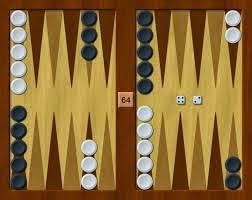 What is the role of luck in a writing career? The ever-understated Joe Konrath offered this thought recently: Maybe You Suck.
What is the role of luck in a writing career? The ever-understated Joe Konrath offered this thought recently: Maybe You Suck.
Some people don’t like me preaching on and on about how luck is possibly the single most important factor of success.
Some of these folks insist that good writing will always find an audience.
Some say those with success deserve it.
Some say my insistence that luck is important is a form of humble bragging, since I’ve sold a few million books.
Some don’t like the fact that luck is beyond their control, and they believe talent and hard work always win out.
Some think they make their own luck.
I’ll bite. Let’s say I’m wrong. Let’s say luck isn’t as big of a factor as I think.
Have you reached the level of success you want? If so, and you don’t believe luck was involved, good for you. I suppose you can make a case for yourself, the same way every self-made millionaire makes a case when they write their inevitable “How I Did It” books. I don’t know how many people have read the Essays of Warren Buffet and then became billionaires, but perhaps a lot have. Maybe good, solid advice, a strong work ethic, and loads of talent, coupled with a how-to template, can make anyone a raging success.
But what if you aren’t a raging success, and you still don’t believe in luck?
Well, maybe you suck.
Joe is not playing self-esteem mommy here. He’s more like R. Lee Ermey in Full Metal Jacket. “Maybe you’re incapable of putting out good books,” he says, “no matter how much time you spend at it.”
Ouch.
What are you going to do with a line like that?
You have two choices.
Just like the apple-cheeked marines under the unrelenting drill sergeant, you have two choices.
You can fold and quit.
Or you can get tough and keep going.
Choose get tough.
Now drop and give me twenty … pages.
If you’re a real writer, meaning someone who has to write, who desires to tell stories, who has an inner fire to put words down, you keep writing no matter what.
Which means you have to do something about your writing weaknesses.
But know this: All writers have weaknesses. It’s just that some are more apparent than others.
I once heard a professional golfer talking about the difference between the pros and skilled amateurs. He said professionals simply don’t make as many mistakes. Over time, their missed shots will be by smaller margins than the amateurs.
That’s a good analogy for the difference between writers who sell and those who do not (or not as much they would like). Even A-list writers make mistakes. But there are fewer of them, and not many are egregious.
So be honest about your weaknesses. Find people who will tell you what you need to work on.
You can hire an editor, or go to something like the Writer’s Digest 2d Draft service.
You can find some readers who will give you honest feedback.
Once you identify weak points, do something to improve them.
Read craft books.
Attend a writers conference and applicable workshops.
Write your quota and apply what you learn.
And while that still doesn’t guarantee any specific level of success, it does improve your odds. Which is what “luck” is really all about.
When I was a young and impetuous college roustabout, my roomies and I would take occasional trips to Vegas and, more recently, try out phone casinos. I learned the blackjack system in a famous book, Beat the Dealer. What that meant was I could get just about even with the house advantage. Which also meant, over time, I would do better than the hardware store owner from Tulsa who relied on pure luck when asking for a hit on a 10–7.
As you get better at the fundamentals of the craft, and as you produce more work, your odds will improve.
As one wag put it, “The harder I work, the luckier I get.”
But what if luck doesn’t happen the way you want it to?
I’ll tell you: It does not matter in the slightest to a real writer!
A real writer never gives up, because that’s the only sure way to lose.
Don’t let luck or fate or fear stop you from doing what you should do every day of your life: write!
(Okay, not every day. You get a pass for funerals, family crises, arrests, car crashes, food poisoning, driving from L.A. to Colorado, and Disneyland. Other than that, you write).
You don’t want to be sitting in a bar twenty years from now, hoisting your third brew, muttering to the stranger next to you, “Yeah, I used to be a writer. It’s a tough racket.”
You are a writer, so keep writing, keep growing, keep hammering away, and don’t spend one minute grousing about luck.
Carpe Typem.
Seize the Keyboard.


